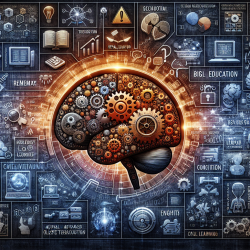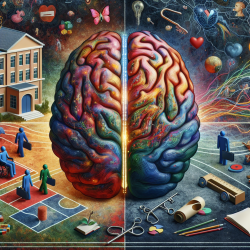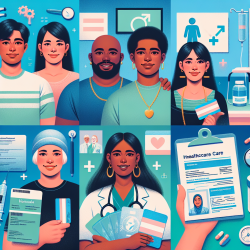Introduction
In the realm of adolescent mental health, primary care physicians (PCPs) play a pivotal role in identifying and managing mental health issues. However, the increasing complexity of mental health disorders and the limited resources available to PCPs necessitate innovative solutions. The recent study titled "Primary care physicians’ perceptions of artificial intelligence systems in the care of adolescents’ mental health" sheds light on how artificial intelligence (AI) can be integrated into primary care to enhance mental health services for adolescents.
The Promise of AI in Adolescent Mental Healthcare
The study highlights that PCPs perceive AI systems as potentially cost-effective, credible, and valuable tools for collecting and analyzing large volumes of patient data. AI can assist in diagnosing and establishing treatment plans, thereby alleviating some of the burdens faced by PCPs. However, concerns about the loss of clinical competency and the need for user-friendly AI systems were also expressed.
Key Findings and Implications for Practitioners
- Efficiency and Data Management: AI can streamline data collection and management, providing PCPs with more time to focus on patient care. By automating routine tasks, AI can help PCPs manage their time more effectively.
- Enhanced Diagnosis and Treatment: AI systems can support PCPs in making more accurate diagnoses and developing personalized treatment plans, improving patient outcomes.
- Patient Engagement: Adolescents may feel more comfortable interacting with AI systems, which can lead to more honest disclosures and better engagement in their treatment plans.
- Ethical and Legal Considerations: The study emphasizes the need for regulatory frameworks to address the ethical and medicolegal aspects of AI in healthcare, ensuring patient safety and data privacy.
Encouraging Further Research and Implementation
While the study provides a foundation for understanding PCPs' perceptions of AI in adolescent mental healthcare, it also highlights the need for further research. Practitioners are encouraged to explore how AI can be integrated into their practices effectively, keeping in mind the ethical considerations and the need for continuous professional development in AI technologies.
Conclusion
AI holds significant promise in transforming adolescent mental healthcare by enhancing the capabilities of PCPs and improving patient outcomes. By addressing the challenges and leveraging the potential of AI, practitioners can contribute to a more efficient and effective healthcare system. For a deeper understanding, practitioners are encouraged to engage with the original research and consider the implications of AI in their practice.
To read the original research paper, please follow this link: Primary care physicians’ perceptions of artificial intelligence systems in the care of adolescents’ mental health.










